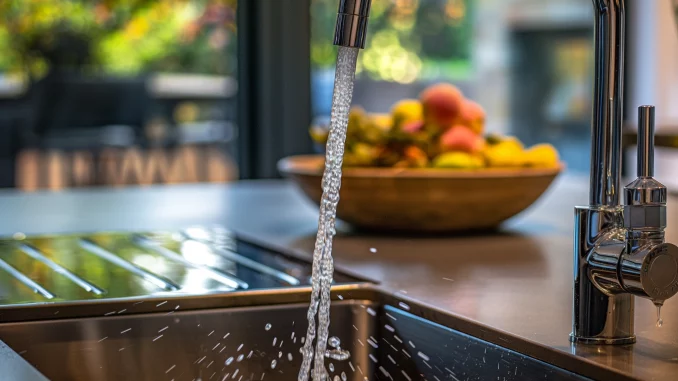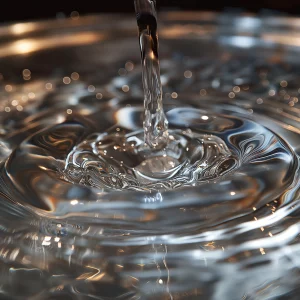
Maintaining Clear Drains: Routine Practices and Techniques
Drain blockages are a common household nuisance that can lead to significant inconveniences and potentially costly repairs. Understanding how to prevent these blockages effectively is essential for maintaining a smoothly functioning plumbing system. This article explores various preventative measures that homeowners and property managers can implement to minimise the risk of drain blockages.
1. Routine Maintenance: Keeping Your Drains Flowing

Regular maintenance is the cornerstone of preventing drain blockages. It’s advisable to start with simple weekly cleanings of bathroom sink and tub stoppers. Hair and soap residue can accumulate quickly and are among the leading causes of bathroom drain blockages. Regularly removing and cleaning these stoppers can prevent the build-up that leads to clogs.
It is wise to hire professional plumbers to inspect your plumbing system comprehensively annually. These experts can identify potential issues that aren’t immediately obvious to the untrained eye. During these inspections, plumbers may use cameras to inspect the pipes and employ advanced techniques to clean out any developing blockages, ensuring your plumbing remains in optimal condition.
2. Tackling Hair Blockages: Effective Strategies
Hair blockages in showers and sinks can be particularly stubborn and annoying. To combat this, consider installing hair traps in all your showers. These devices are designed to catch hair before it enters your drains, making it easy to dispose of it in the trash rather than letting it clog your pipes. Additionally, brushing your hair before you shower can significantly reduce the amount of hair that might end up down the drain.
Installing drain strainers in both showers and sinks is a practical measure for extra protection. These strainers block larger debris, such as soap chunks and hair clumps, from entering your plumbing system, thereby preventing potential clogs.
3. Kitchen Practices: Safeguarding Your Sink
The kitchen sink is another common site for potential blockages. Using strainers to catch food scraps can drastically reduce the risk of clogs. It is important never to dispose of grease, oil, eggshells, coffee grounds, or hard-to-grind food items down the sink. These substances can solidify or accumulate in the plumbing, leading to severe blockages.
Instead, dispose of oils and fats in a sealed container and throw them in the trash. This practice helps maintain clear drains and contributes to a more sustainable disposal method for kitchen waste.
4. Toilet Care: Flush with Care
Toilets are designed to dispose of only human waste and toilet paper. Flushing sanitary products, condoms, wipes, or nappies can quickly lead to blockages. These items do not disintegrate and can cause significant damage to your plumbing infrastructure. Educating everyone in your household about what can and cannot be flushed is crucial in preventing these blockages.
5. Grease and Oil Management: Avoid the Pour

A common misconception is that pouring grease or oil down the drain if followed by hot water, is safe. This is not the case. Grease should never be poured down the drain as it can solidify within your plumbing, leading to a blockage. Regularly using boiling water can help dissolve some grease build-up, but it should not be relied upon to dispose of oils initially. A better practice is to allow grease to cool and solidify, then scrape it into a trash bin.
“Pouring grease down the drain is one of the most common mistakes homeowners make. It may seem harmless, but grease solidifies, accumulating in pipes and leading to major blockages. Instead of disposing of it down the sink, let it cool and then discard it in the trash. This simple practice can save you from costly plumbing disasters and maintain the integrity of your home’s drainage system,” advises Mark Cordner, a professional drain contractor from Regency Drainage Brighton.
6. Garbage Disposal Care: Cold Water and Ice
Proper care for homes equipped with garbage disposal can extend its life and prevent blockages. Operating your garbage disposal with cold water is recommended, as this helps to solidify any grease or oil, which the disposal can more easily grind up and move along the plumbing. Occasionally, tossing a cup of ice into the disposal before running it can help clean the blades and remove clinging waste, ensuring it continues functioning effectively.
7. Chemical Avoidance: Protecting Your Plumbing
One of the more critical practices in maintaining drain health is the avoidance of harsh chemicals. Many households need to correct the mistake of disposing of paints, solvents like thinners, and other non-biodegradable chemicals down their drains. These substances can cause significant damage to plumbing systems, leading to costly repairs and environmental damage. Instead, these materials should be taken to designated hazardous waste disposal centres equipped to handle such materials safely.
Moreover, harsh chemical cleaners to clear blockages can deteriorate your pipes over time. Opting for biodegradable solutions protects your plumbing and contributes positively to environmental conservation.
8. Biodegradable Solutions: A Gentle Alternative
Incorporating biodegradable and enzyme-based cleaners into your monthly maintenance routine can provide a non-corrosive method to maintain your drains. These natural cleaners break down organic matter that can clog your pipes, such as hair, grease, and food residue, without the harmful effects of chemical cleaners. Bacterial cleaners are another excellent choice for a more comprehensive maintenance regime as they continually degrade build-up, keeping your drains clear and odour-free.
9. Heat Application: A Simple Preventative Measure
Regular application of heat is another effective strategy for managing oil and fat accumulations in your drains. By periodically flushing your drains with hot water, you can melt and disperse minor accumulations that could potentially develop into clogs. This practice is simple yet highly effective, especially in kitchens with more prevalent oils and fats.
Emergency and Persistent Issues: Knowing When to Call a Professional

Despite all your efforts, some blockages can be particularly stubborn or indicate more significant issues within your plumbing system. In these cases, it’s essential to call in professional plumbers. They possess the tools, expertise, and experience to address severe blockages effectively and can perform maintenance checks to prevent future problems. Relying on professional help for complex or persistent issues ensures that your plumbing is handled safely and efficiently, safeguarding its long-term functionality.
Wrapping Up
By adopting these preventive measures, you maintain a more efficient household and contribute to the longevity of your plumbing system, avoiding the frustration and potential expense of unanticipated repairs. Engaging in regular maintenance, using the right products, and understanding when to seek professional help are all part of a comprehensive strategy to keep your drains clear and fully functional.
We must all recognise that our home’s plumbing system is as vital as any other utility service that requires regular upkeep and informed care. By diligently applying these measures, we ensure our home environment remains hygienic, operational, and comfortable. Making these practices a routine part of your home maintenance can lead to significant savings over time, not just in money but also in convenience and peace of mind.